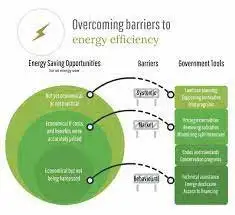Koreas end meeting without nuclear talks agreement
SEOUL, SOUTH KOREA - North and South Korea ended a high-level meeting without agreement on resuming six-country talks on ending Pyongyang's nuclear ambitions.
The two Koreas will take "practical steps" to resolve the nuclear crisis diplomatically, but not before the right conditions are established, a joint statement released after the talks in Seoul said. It did not elaborate on those steps.
South Korea said it would give food to its impoverished communist neighbor and the sides agreed to hold military talks.
"The South and North will take practical steps for the resolution of the nuclear problem peacefully and through dialogue for the ultimate goal of the denuclearisation of the Korean peninsula as soon as the atmosphere is established," the joint statement said.
North Korea has demanded for several months Washington withdraw what it called a hostile policy against it as a precondition for resuming the talks. Its leader said recently such a move could start with treating his country as a partner.
Pyongyang has never clearly elaborated what it wanted from Washington, except demanding the pullout of U.S. nuclear weapons from the Korean peninsula. The United States used to have nuclear weapons on the peninsula but says it no longer does.
South Korea agreed to provide food aid to the North on humanitarian grounds but left the decision on the quantity to later talks. Seoul is expected to provide 400,000 tonnes to match the amount provided last year.
The two sides also agreed to hold a new round of military talks and the next round of ministerial talks at Mount Paektu, which straddles the North's border with China.
The two Koreas were meeting in Seoul amid growing optimism North Korea might return to the talks with China, Japan, Russia, South Korea and the United States after a year of deadlock and recent conciliatory gestures from Pyongyang and Washington.
The United States said it would give 50,000 tonnes of food aid to the North, describing it as humanitarian and not politically motivated to lure Pyongyang to the table. But analysts saw a bigger picture.
"It's hard to believe the timing is just coincidental," said Joseph Cirincione, a Carnegie Endowment for International Peace non-proliferation expert.
Related News

Ontario to Provide New and Expanded Energy-Efficiency Programs
TORONTO - Ontario will be making available four new and expanded energy-efficiency programs, also known as Conservation and Demand Management (CDM) programs, to ensure a reliable, affordable, and clean electricity system to power the province, drive electrification and support strong economic growth. As there will be a need for additional electricity capacity in Ontario beginning in 2025, and continuing through the decade, CDM programs are among the fastest and most cost-effective ways of meeting electricity system needs.
Conservation and Demand Management
The Ontario government launched the 2021-2024 CDM Framework on January 1, 2021. The framework focuses on cost-effectively meeting the needs of…




